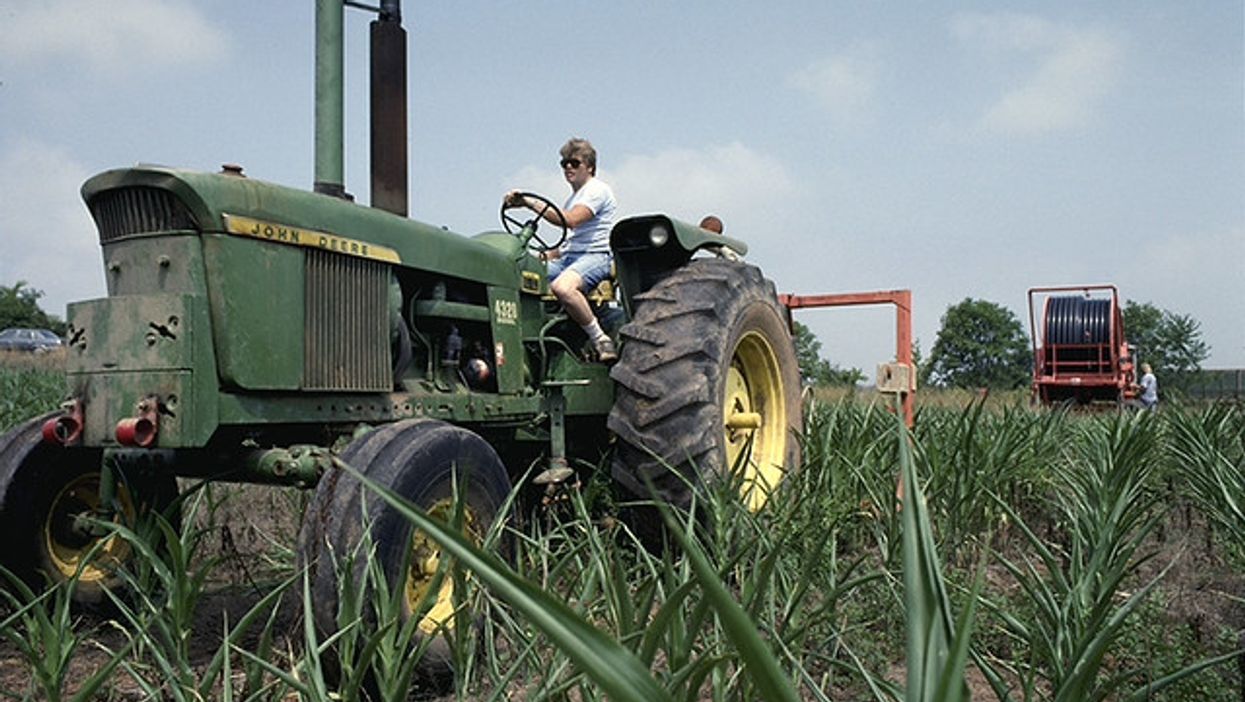Trump Comes Up $10 Billion Short On Farm Trade Relief
Donald Trump promised back in January that American farmers would benefit greatly from his highly touted trade deal with China. Now, reports show that promise may be difficult to keep.
As of May, China had purchased just $5.4 billion worth of U.S. agricultural product, despite a goal of at least $33 billion by the end of the year, the Wall Street Journal reported on Saturday.
Through the first five months of the year, that amounts to barely 10 percent of what Trump promised initially.
In December 2019, Trump made headlines when he pledged China would purchase tens of billions of dollars worth of agricultural products from American farmers in 2020.
"I think they'll hit $50 billion," Trump told reporters on Dec. 13 when the White House announced "Phase One" of the deal. "They've already stepped it up."
The Journal noted that the official deal with China set a goal of $33 billion in agricultural purchases, a goal on which China is still falling behind.
Again, in January, Trump reassured farmers that the deal was a win for them, claiming that the harm inflicted on them by his long-running trade war with China would soon be reversed.
"You stayed in the fight. You were always with me. You never even thought of giving up and we got it done," he said in a speech at the American Farm Bureau Federation's annual convention.
He claimed he would make sure China held up its end of the deal.
"I think it's going to work out and I think China is going all out to prove that the agreement that we signed is a good agreement," he said.
The Democratic Party was quick to criticize Trump about China's low purchase total.
"It's clear that Trump got played, and American workers and farmers have paid the price," DNC War Room director Adrienne Watson said in an email on Monday.
The deal is the culmination of a nearly two-year-long trade war between the two nations that has severely damaged U.S. agricultural interests.
From the time Trump entered the White House through the middle of 2019, farmer bankruptcies in the Midwest increased by 45 percent.
In Wisconsin alone, 10 percent of dairy farms ended operations in 2019, the largest decline in Wisconsin state history.
An investigation in early 2020 found that the trade war may have also contributed to a spike in farmer suicides in 2017 and 2018.
As a candidate, Trump repeatedly pledged to help U.S. farmers with exports. "...We're going to negotiate trade deals to help our farmers, help them export their goods, and make money doing it," he said at a rally in September 2016. "Because the way it is now, it's impossible... and grow family farming in America. We're going to grow the farms."
Even in the middle of the trade war, which began in March 2018, Trump bragged about how well farmers were doing.
"Farmers are starting to do great again, after 15 years of a downward spiral," Trump tweeted in July 2019.
In August that year, Trump tweeted that "our great American Farmers know that China will not be able to hurt them in that their President has stood with them and done what no other president would do."
Trump later attempted to mitigate some of the damage caused by his trade war by spending more than $28 billion in bailout funds.
A 2019 investigation by Democrats on the Senate Agriculture Committee found that the bailouts unfairly benefited wealthy farmers at the expense of smaller and medium-sized farms.
A separate study by the Counter found that 99 percent of the first $8 billion of bailout funds went to white farmers.
The study found, for instance, that despite 14 percent of Mississippi farms having Black principal operators, they received only 1.4 percent of the $200 million in bailout funds sent to Mississippi.
Published with permission of The American Independent Foundation.




